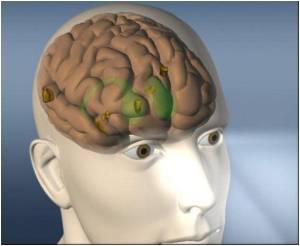Australian researchers say that a gene mutation behind dicarboxylic aminoaciduria(DA), a rare kidney disorder, could also be linked to obsessive compulsive disorder(OCD).

Lead researchers, Professor John Rasko and Dr Charles Bailey from the Centenary Institute, identified mutations in the gene SLC1A1. This gene encodes a protein pump which scavenges important amino acids from our food in the kidney. But the identical pump in the brain also governs the movement of the same amino acids which act as neurotransmitters.
Analysis of mutant pumps found in affected families in this study showed they were severely or completely impaired in their ability to transport these important amino acids in the kidney.
Centenary Institute Head of Gene and Stem Cell Therapy Professor John Rasko said: “These findings prove for the first time that SLC1A1 is the affected gene in dicarboxylic aminoaciduria and demonstrate the crucial role that SLC1A1 plays in the kidney’s ability to process the essential amino acids glutamate and aspartate. Dicarboxylic aminoaciduria is a rare kidney disorder but this discovery may provide us with a clue to understanding OCD that affects approximately 3% of Australians. Due to the crucial role of SLC1A1 in normal brain function, the findings also have major implications for a likely genetic cause of some brain disorders like obsessive-compulsive disorder.”
“During the past few decades studies have revealed that OCD has a strong genetic component. Various genetic studies have linked OCD to SLC1A1 and other studies have also implicated abnormal brain glutamate activity in OCD. However, there has been no physical proof of how SLC1A1 is likely to cause OCD. Our research is a major first step towards bridging this gap as we have discovered those genetic defects that could impair the normal functioning of the neurotransmitter glutamate in the brain,” said Professor Rasko.
The researchers believe the benefits of this study may not only help people with DA but also provide a simple way to identify those who may be at risk of early onset OCD, which can begin in children as young as 5 or 6 years of age. In particular, previous studies have linked this gene to mostly males with OCD.
Advertisement
These findings will have a significant impact in improving the lives of people who suffer from early onset OCD, according to leading OCD expert Dr Mairwen Jones from the University of Sydney.
Advertisement
This research completes the molecular profiling of all five principal inherited kidney disorders, which includes cystinuria, lysinuric protein intolerance, Hartnup disorder, iminoglycinuria and now dicarboxylic aminoaciduria. This team led by Professor Rasko from the Centenary Institute comprises an international consortium of researchers from the University of Sydney, Australian National University, Université de Sherbrooke in Canada and Royal Prince Alfred Hospital. In recent years they have discovered the genetic causes of the majority of these inherited human kidney disorders.
Professor John Rasko is Head of Gene and Stem Cell Therapy at the Centenary Institute. Professor Rasko is also Head, Cell and Molecular Therapies, Royal Prince Alfred Hospital and Professor, Sydney Medical School, University of Sydney.
This research was made possible through funding from the Australian National Health and Medical Research Council (NHMRC), the Australian Research Council (ARC), University of Sydney Bridging Support Grant, Rebecca L. Cooper Foundation and Cure the Future Foundation.
Source-Medindia











